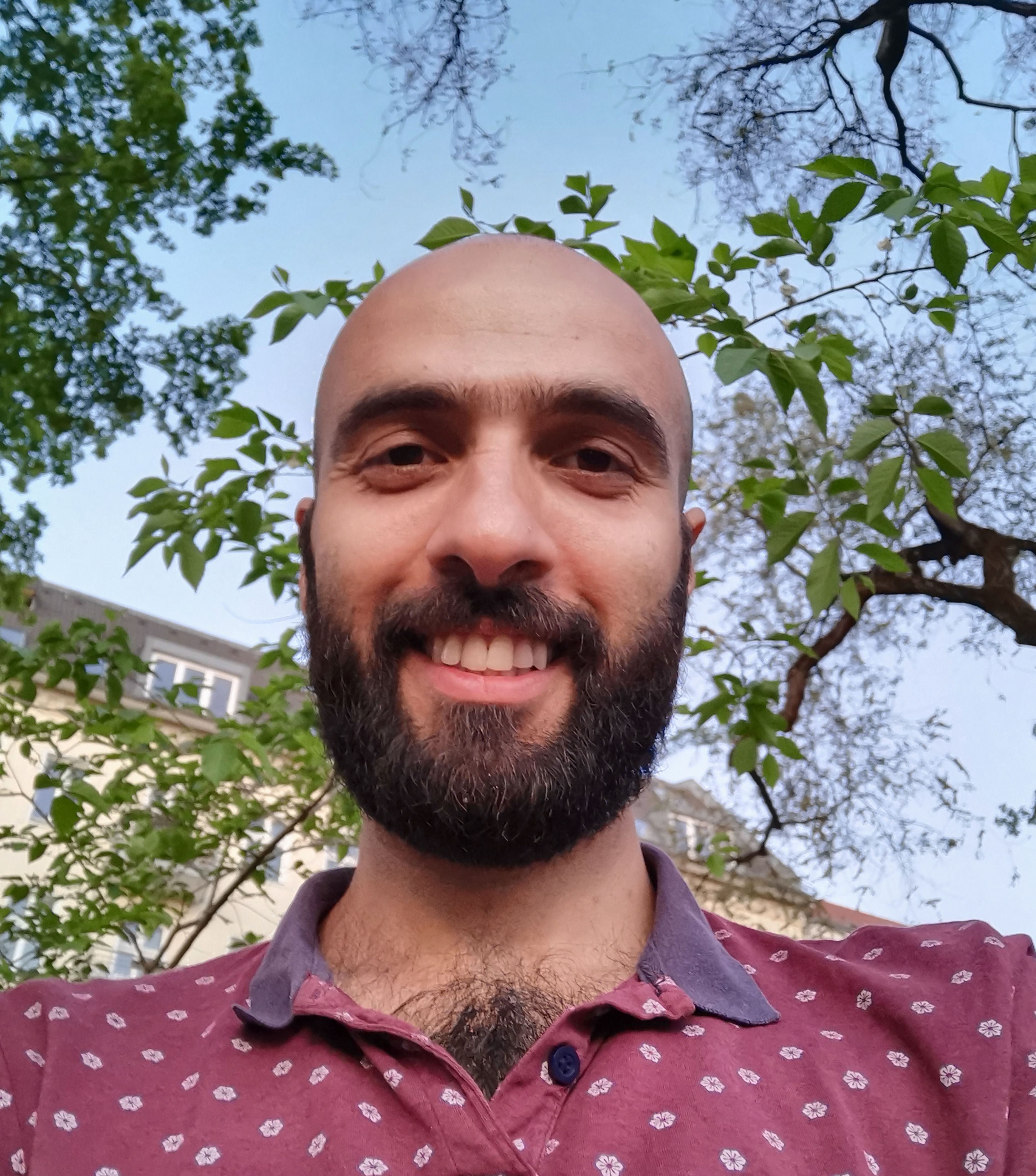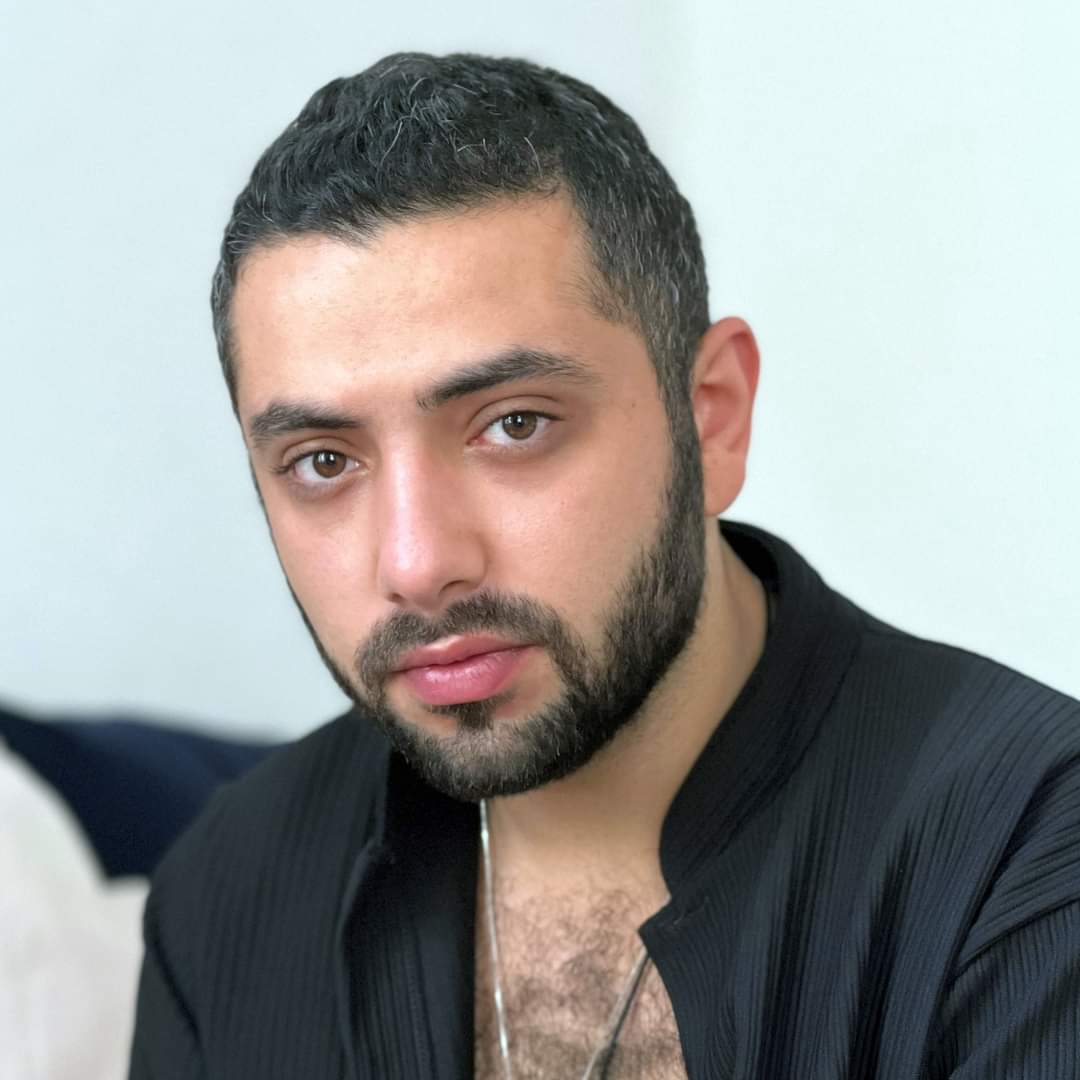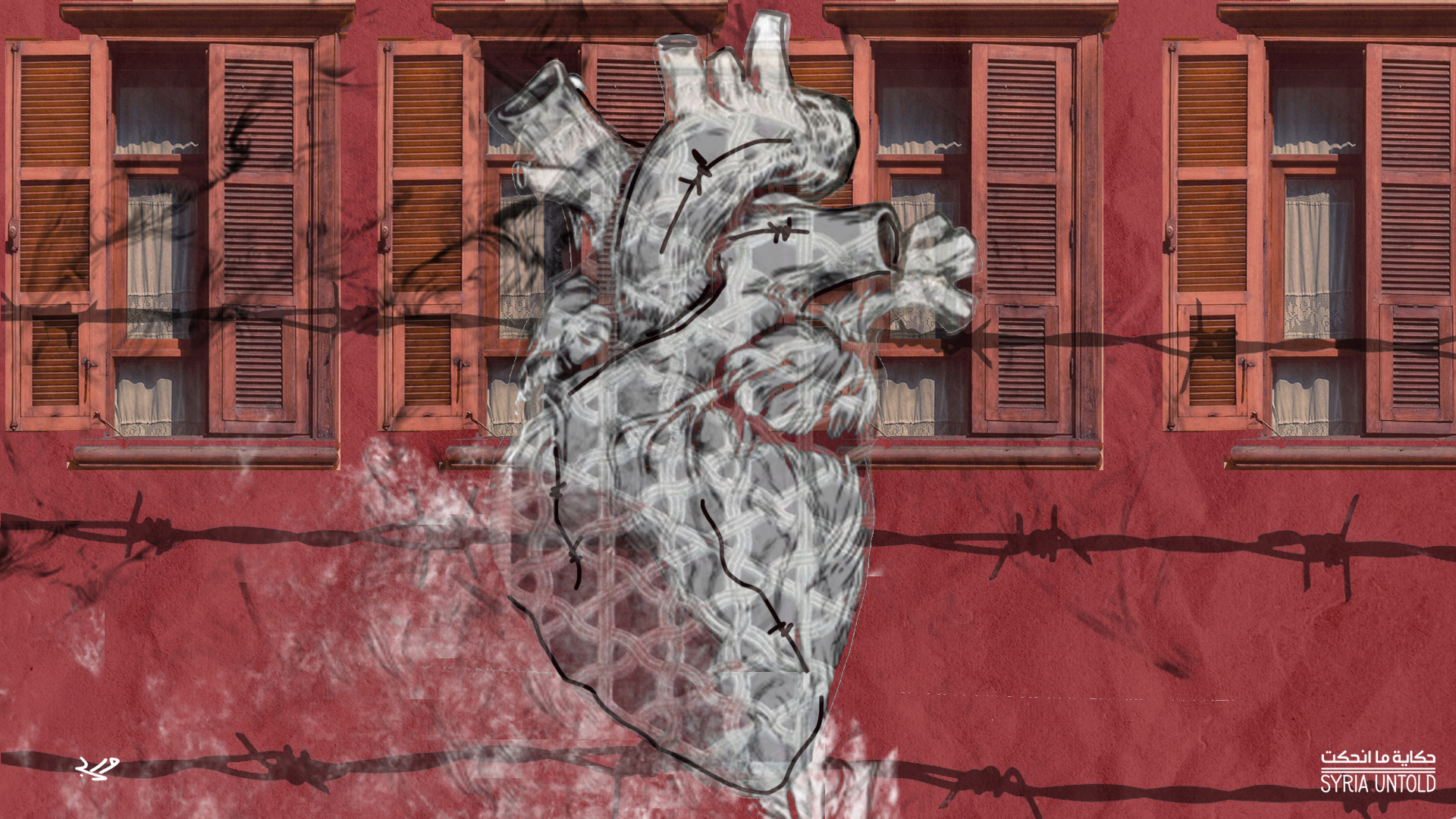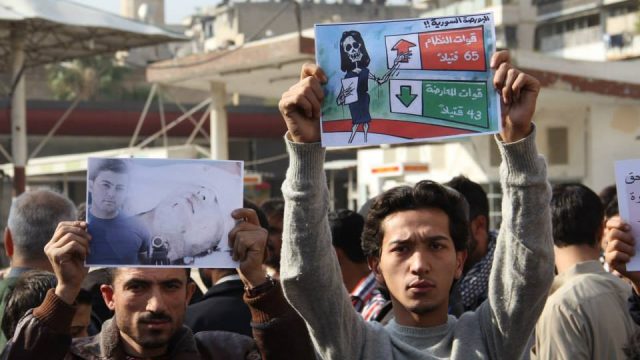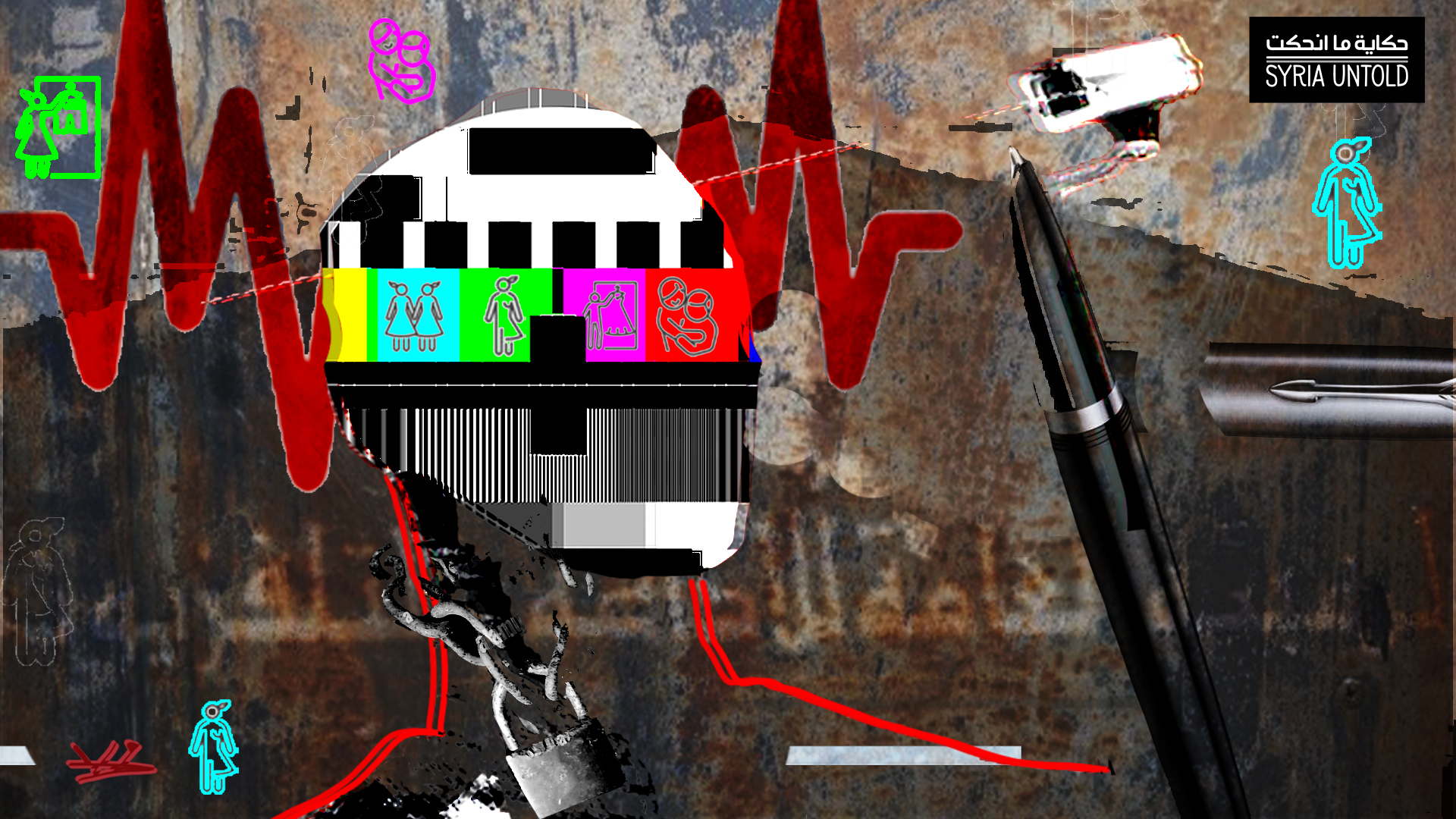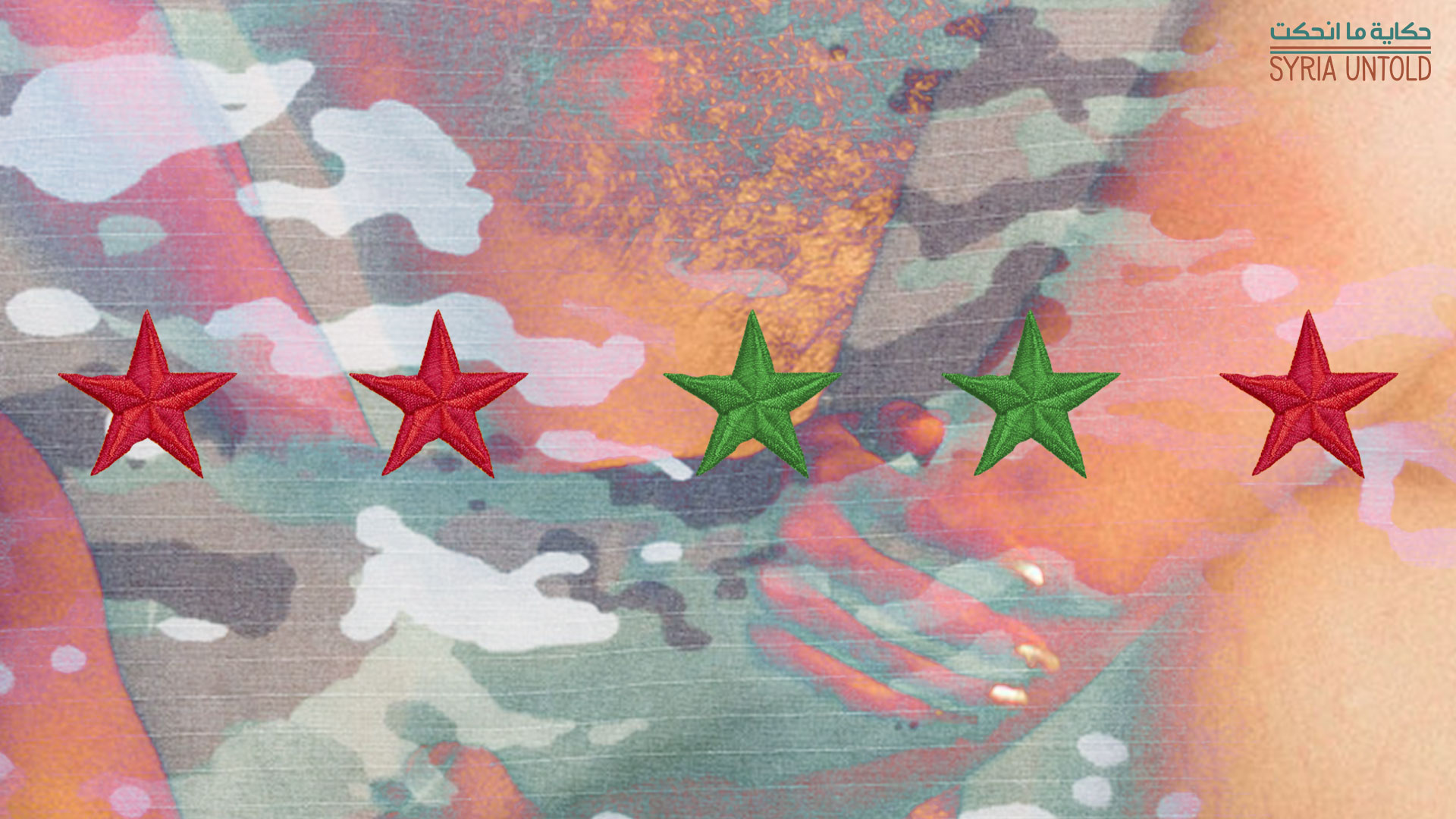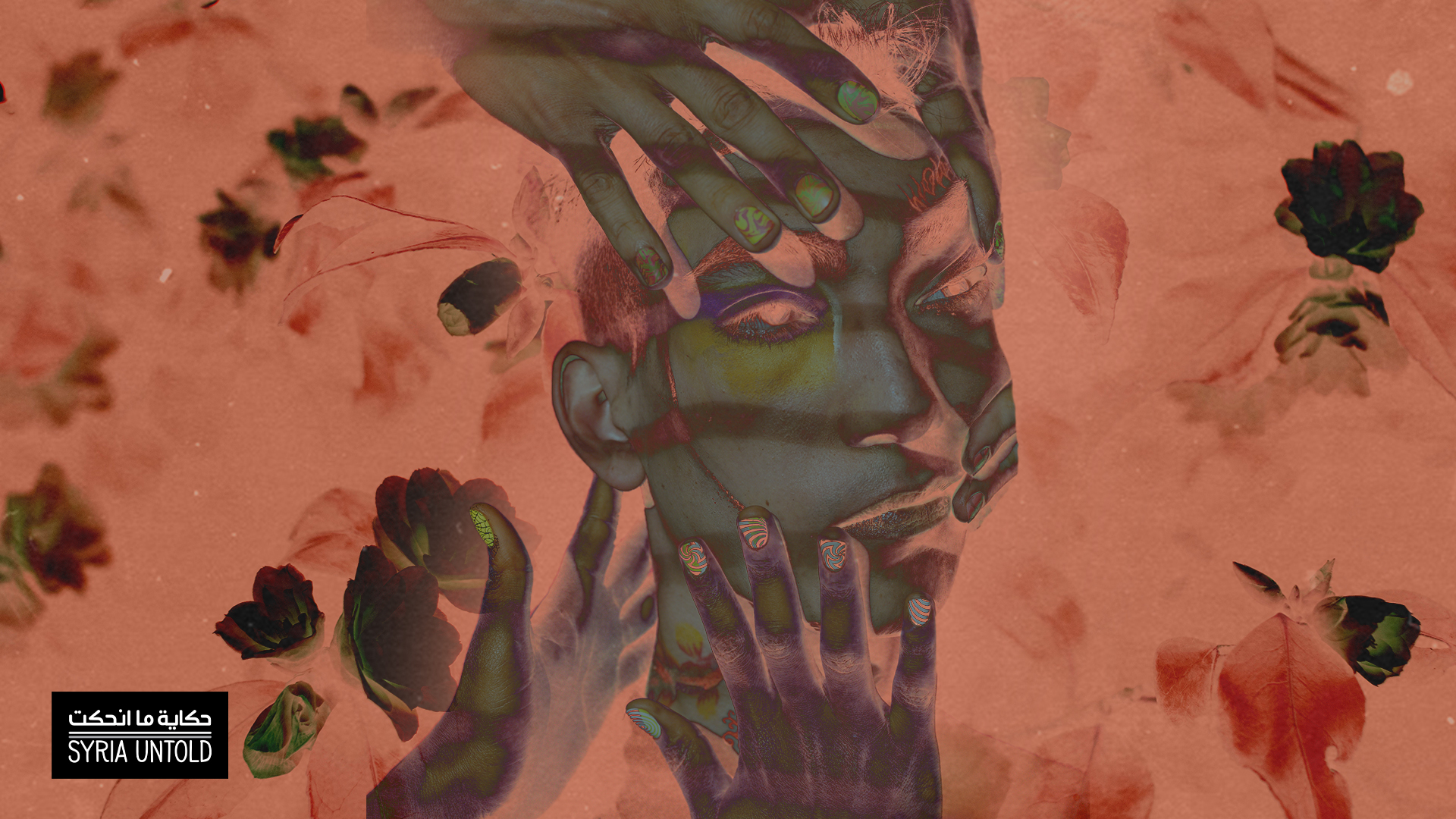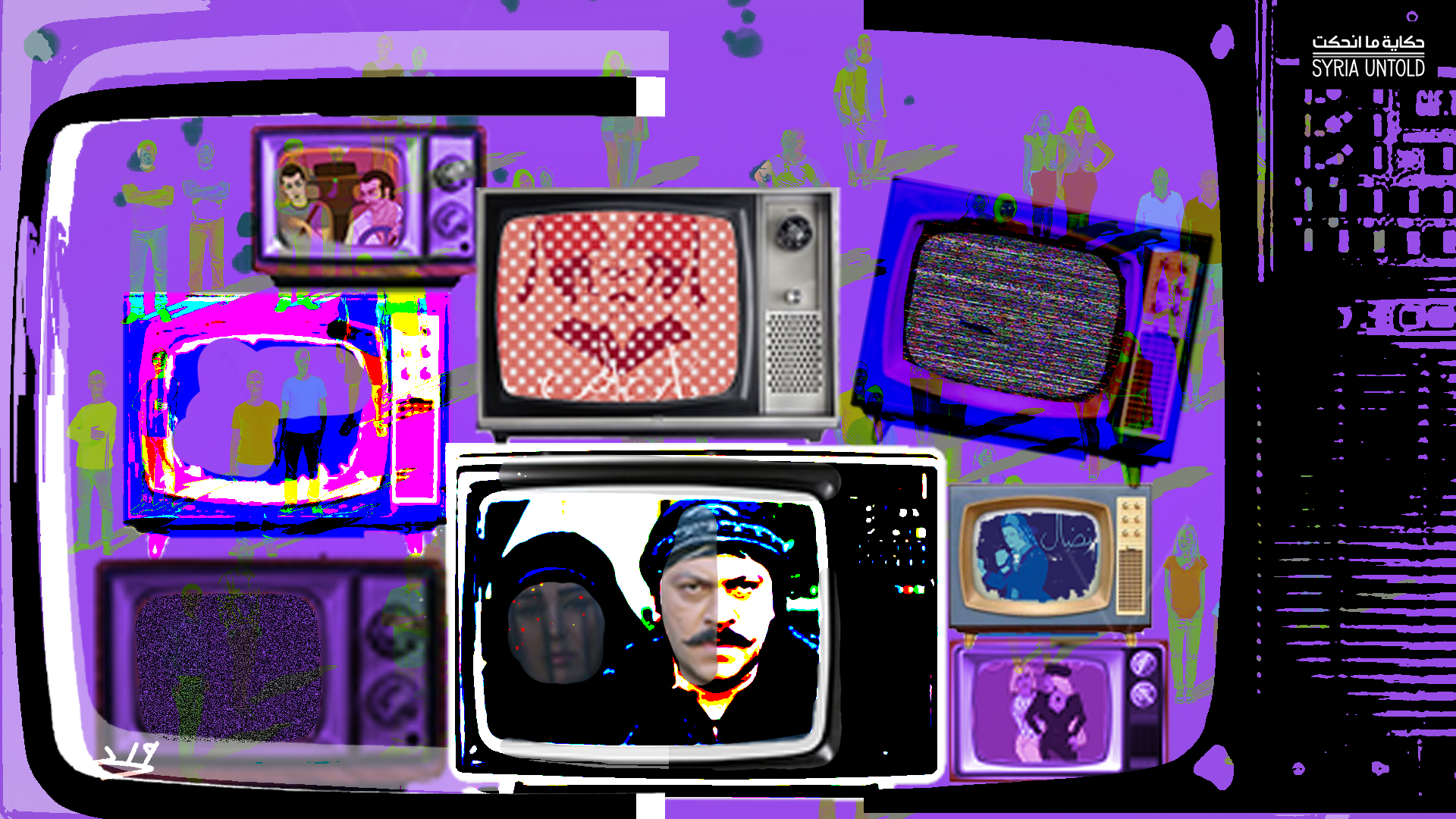In 2020, your first play Chez the Maidenly Madam was published. Can you tell us a bit more about it, namely the plot, the background, and the motivation behind writing it?
The idea began in 2017 as a loose interpretation of Jean Genet’s The Maids. Chez the Maidenly Madam is a contemporary queer Syrian play that tells the story of two brothers, Helmi and Diya’. They work in a car repair shop, while their mother works as a dancer in a nightclub. When she leaves to work, one of the brothers wears her clothes, mockingly imitating her authoritative tone and the controlling way in which she treats them. The play takes place in a poor neighborhood of post-war Damascus and addresses the issues of an entire generation: its struggles with power, family, asylum, identity, and gender.
That is, in brief, the plot of the play. As to the motivation, it was the near absence of gay characters in leading roles in Syrian and Arab theater in specific, and works of fiction in general. The few gay representations that we do have are timid, stunted and in minor supporting roles. The gay in fiction, and here I am specifically talking about male homosexuals, is reduced to a stereotype as it is in the collective imagination of society. He is soft in both looks and interests, typically indecisive, solely focused on his appearance, his hobbies can only be painting or playing music on a delicate instrument. To be clear, I have nothing against such a representation, quite the opposite, but reducing an entire group of people to one image is a reductive generalization and a sign of a dismissive interpretation of this group in literature. That holds true even when the writer sympathizes with the community and is attempting to give a positive representation.
In short, I wanted to write this play to say that people’s sexual orientation or gender identity are not just reduced to one form, social class, or specific environment. This question is a human journey that everyone engages in, regardless of the shape it specifically takes.
You say that you were inspired by Genet’s play, why him? And why this play in particular? Why would it be more suitable to transpose to the Syrian context and the issues you raise?
When I first read the play, I was struck by how relatable both the characters and the writing were. Genet centers the “others”, the characters that no one bothers to pay attention to, the outcasts, the excluded, the marginalized, and those deemed by society in general as faulty, not what humans should be like. This is what attracted me as a young queer writer living in Damascus and searching for his identity in every sense of the word. We find in Genet’s a clear queer component cleverly concealed behind symbols. This, I believe, was what pushed me to read his work and discover his unconventional personal life. It also expanded my definition of what a play can be, and what could or could not be written about. At first, I wanted to write a localized version of The Maids but slowly drifted away. Eventually, the role-playing component was the only thing I kept from the original play. What I really took from it is the courage to write boldly and unabashedly.
The Maids is a play about class conflict and existential questions, whose characters are not representative of a certain set of values or principles often associated with class struggles. Genet chose maids as main characters, but ones that spoke with absurd eloquence. There are many elements of absurdity and the usual symbolism in the play, which no doubt piqued my curiosity and attracted and empowered me. The maids are the underdogs no one listens to and Genet elevates them with a language they are assumed to be incapable of. I personally consider myself to be just like them, and this is what made the play so relatable to me.
The way in which The Maids plays with gender carries a lot in its folds, puns and dissimulations in some places clash with crude frankness in others, then powerful monologues call out classism, critiquing it without the need for a manifesto or a revolutionary movement. I wanted to take the queer dimension in Genet's plays in general, and The Maids in particular, out of its symbolic shell and deliver it in its crude and blunt reality. For that, I chose the context of a Syrian family. Authority and conflict in Genet’s play are different from what would exist in a family context, which I consider to be the building block of such issues.
I wanted to take the queer dimension in Genet's plays in general, and The Maids in particular, out of its symbolic shell and deliver it in its crude and blunt reality.
The choice of the play for me depended on all of the above, but the focal point is the marginalized character who finds themself under the microscope and has neither the right tools nor the sophisticated and compelling language necessary to convince the public eye of the righteousness of their words and assert their right to exist. This basic human right itself carries very different meanings where I come from, namely in the Syrian society in which I was born and raised. The same society whose approval I once sought, starting with the nuclear family and going outward.
As I said before, the main element that I took from the original play is the idea of role-playing and a certain adaptation of power dynamics. Chez the Maidenly Madam does not work up to a dramatic event but to the anticipation of one. When that event takes place, it is not sudden. The crudeness I spoke off was in the daily life, the unspoken, the deliberate avoidance of confrontation, it is in the details that fold into the passing day under the pressure of the impossibility of life in the Syria of 2015.
The main themes of Chez the Maidenly Madam are family, power, gender, and sexuality. Though, the way I see it, family and power are deeply intertwined in the patriarchal hierarchy of Syrian society. One can see the traces of this patriarchy in the smallest details. It restricts individuals and their lives through shame, taboo, and fear for one’s reputation. And this is what directs the story of Chez the Maidenly Madam’s characters, dictating their actions, lifestyles, gender identity, and sexuality. Helmi desperately tries to be macho, crushed under the image of the man of the house. Diya’, on the other hand, flaunts silk clothes and makeup, enjoys belly-dancing, and is subjected to harassment in the car workshop. Then there is the stress and looming shadow of war and the impossibility of living that each of us faces in our own way. Personal stories, however, are always true. Individual narratives make up our collective Syrian and queer story, and this is what I wanted to depict in the play. The everyday is necessarily political and we should not prioritize issues and rights.
Queer and trans issues are practically absent from the Syrian cultural scene. I believe there has been no play that dealt with the intersection of power and homosexuality or sexuality in general since Rituals of Signs and Metamorphoses by Saadallah Wannous back in the nineties. What is your interpretation of this absence?
Of Paint Strokes and Words Underlined
26 May 2023
I can only answer this question from my personal experience and within the limitations of what I know. I believe that the first culprit is censorship. Authorities heavily censor political and moral subjects, using the pretext of protecting society and preserving public decency from exposure to subjects it deems shameful and going against norms and tradition. Theater cannot thrive in an environment stifled by repression, unbreakable codes and restrictions. Theater in Syria has been lacking for a long time. With the exception, maybe, of the few that try to operate outside the authority of the Directorate of Theaters and Music, I think all theater professionals have to master the art of coding, I’d even say that there hasn’t been a single theater play that was not plagued by symbolism, ambiguous dialogue, and hidden meaning. It is a very difficult environment to work in, to do theater is like journeying in a minefield, you live in the constant fear of inadvertently stepping on one the censors’ trigger. Thus produced, plays lack any element of reliability to the audience. The field has become elitist, nothing more than a tired game of riddles that fails to express anything. The content is no longer realistic, honest, or capable of addressing issues freely, how would it then be able to bring pleasure and value to its audience. Political and religious censorship increased dramatically after the war. Nowadays, even timid attempts at addressing any issues have become impossible.
When it comes to questions of homosexuality, or sexuality in general, we have the issue of social norms which are largely based on a religious discourse that shuns, despises, and forbids any mention of these issues. Then there’s the superficial representation of homosexual characters by authors who are outsiders to the community. At times, even when the representation is meant to be positive, it perpetuates certain stereotypes and reinforces the othering of homosexuals, defining them as different and generalizing the traits and behaviours of some to the whole. This, I believe, further makes the queer community exceptional, as odd and unfamiliar, rather than problematizing the construction of the familiar itself. Even humble and timid attempts at representation should be thought through and anchored in reality. On the other hand, queer writers should be supported to get to a point where they can write about their issues based on their perspective and that of those around them. They can draw inspiration from stories and experiences they know and are the best positioned to put into words.
How have the revolution, war, displacement, and exile impacted and changed Syrian theatrical production, especially when it comes to taboo subjects?
A lot has changed and taboos have been broken, especially in the diaspora. That is an undeniable truth. There is a completely different ecosystem of theatrical, literary, artistic and media production that documents, translates, and reflects on the disaster that has taken place. On the one hand, there is a space for this production to exist, but it is far from Syria, inaccessible to those that are still inside. On the other hand, new challenges arose, namely racism, labelling, and discrimination.
In a nutshell, I find that Syrian theater in the diaspora is making serious and evident progress, but it still has some problems. It is an entity in search of its form and identity. It has not yet reached a point where it can adequately deal with this new environment and assert its own needs in it.
I believe that Arab and Syrian migrant theatre is gaining more confidence in addressing issues of homosexuality, and sexuality in general.
At this point in time, I believe that Arab and Syrian migrant theater is gaining more confidence in addressing issues of homosexuality, and sexuality in general. In the absence of the constant threat of censorship that prevailed back in Syria, artists can build stories and narratives more freely. However, they are confronted with other problems. In European art scenes, for example, we are confined to the representation of the helpless victims that have found safe haven in the bastion of freedom that is Europe. If their work strays away from this narrative, they are less likely to find funding and support.
How did the war and migration impact the themes you address in your play, particularly homosexuality and transgender issues and their relationship with space, culture, and language?
What I have lived with and through has changed me as a person. I left Syria in early 2017, started writing my play in Beirut, Lebanon, and finished its last draft in Germany.
War changed a great number of concepts, bonds have been broken, and throats and pens broke free. A disaster has befallen us, it brought displacement, asylum, and exodus. It was as if courage and hope burst out one day only to fade again in the next. Everything has changed and will never be the same again. This is exactly what compelled me to write my play, drawing inspiration from The Maids specifically. How do we normalize disasters? How do we find ourselves in such a reality? How can we even begin to question, discuss, and reflect? Do we even have that luxury? Do our personal stories have a right to exist? How will the first son look his mother in the eye, feel his heart wrenching, cry, and tell her in all ways possible that he is gay? How can she sweep this truth under the carpet? Why will Helmy not experience what others call “coming out”? There is a need to come out of the shadows, a need for revelation and confrontation that war and disaster awakened in all of us.
There are always these cookie-cutter labels that seem to chase LGBT individuals wherever they go. By crossing borders, they seem to just jump from one box to another, but the fundamental struggle remains the same. In Lebanon, I was bullied and scared to publish in my own name. In Germany, I am subjected to racism, discrimination, and confinement to a single part of my identity that I must constantly exhibit to find acceptance. Acceptance always means to melt into the ocean and disappear in it, be it in Syria, Lebanon, or Germany. It is only the form of the conflict that changes. Thus, the theme of a queer struggle for acceptance remains unchanged in Chez the Maidenly Madam, it just grew beyond a conflict confined to a single society or system. It is rather a humanist conflict and a resistance against all forms of heteronormativity. It is a struggle for a space where queer people can exist with or without the approval of others.
There are always these cookie-cutter labels that seem to chase LGBT individuals wherever they go. By crossing borders they seem to just jump from one box to another, but the fundamental struggle remains the same.
As for culture and language, I wrote my play in Arabic and I am working on translating it at the moment. I am also studying the possibility of producing it in Berlin, Germany. For the time being, nothing is confirmed. But as I said before, there are creative considerations that the team and I need to take into account before presenting such a play in Germany. We need to carefully consider the identity of the audience, and its reception of the work, in order to avoid perpetuating narratives of othering, victimhood, and the narrow image that is forced upon Syrian queer playwrights in Germany.
What are your future projects and aspirations for Syrian and Arab theater in Germany and the diaspora?
I am working on a number of projects. There is, of course, all the freelance work that pays my bills and keeps a roof over my head. “Art doesn’t put bread on the table,” as my mother likes to remind me all the time.
I continue to work on the translation of Chez the Maidenly Madam and exploring opportunities to produce the play. I am also working on the draft of a new play that deals with family and the relation between Syria and its diaspora. It is still a work in progress and I am taking the time to get to know the characters. Though I do feel that this theme is a curse that haunts me wherever I go. I am also currently working with Taqato’at, a German-Syrian organization, on a new queer Syrian archive.
As for my aspirations, I am optimistic. I am pleased to see innovative experiments by Syrian artists, particularly in the field of theater. I try to attend events organized by the community. I am always looking forward to collaborating on projects relating to Syrian theater, so if anyone reading has a project in mind, contact me, let’s work on something together.
I previously worked on Syrian arts and culture projects, I also worked with a number of arts and culture organizations in Germany. Moving forward, I think we desperately need to come together in a network, caucus, or organization for Syrians that work in the domains of theater, arts, and culture in Germany. We need an entity that could develop strategies and projects to ensure that our voices are heard, that we are able to be independent, and that our work can be sustainable. In other words, I think we need some form of organization that will bring and encourage change in cultural policies and practices, so that Syrians can have their say on how they want to present the Syrian artistic and cultural production.


